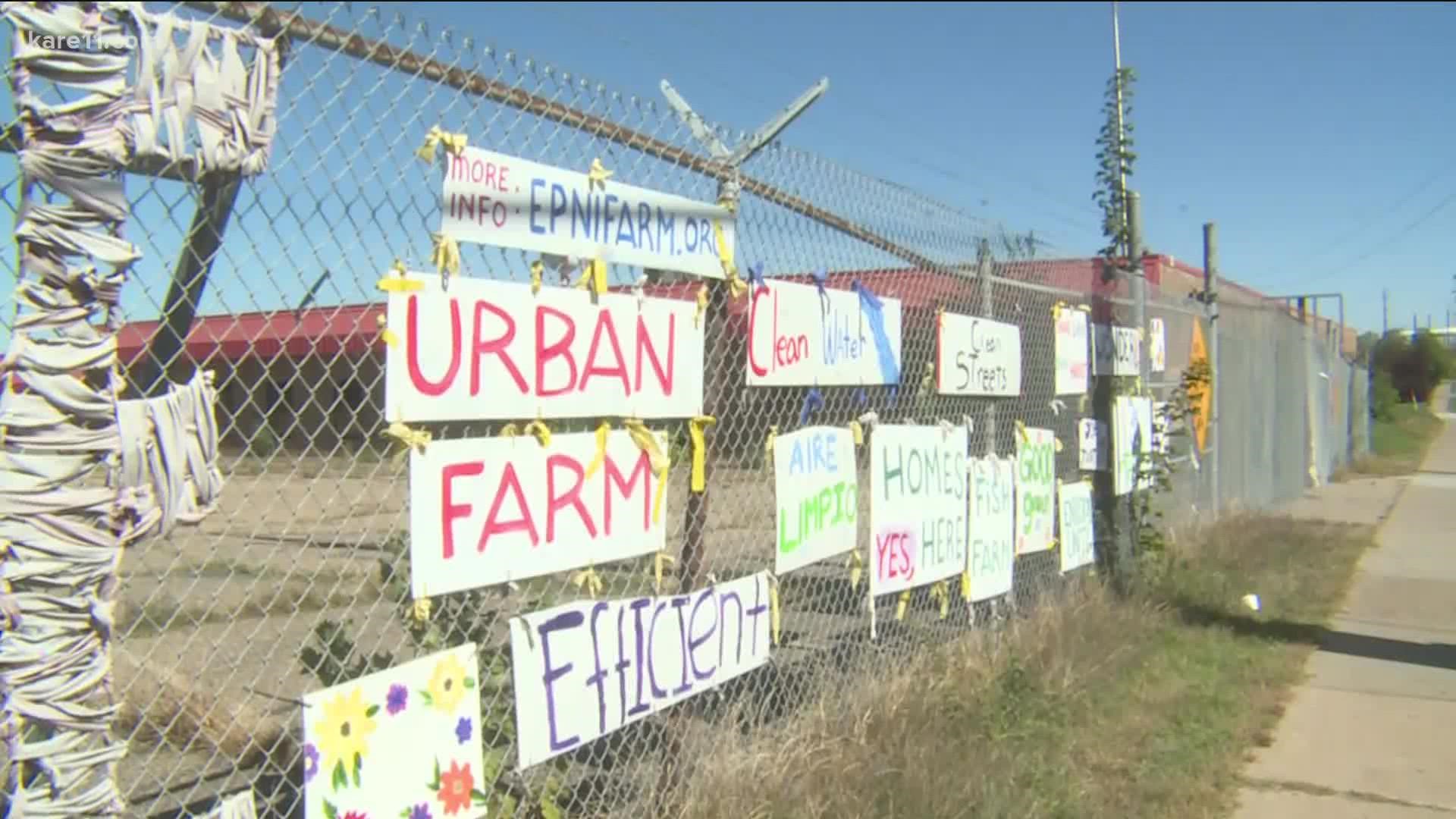MINNEAPOLIS — Cardboard posters line the fence of this abandoned warehouse at the intersection of Longfellow Avenue and East 28th Street.
"I've lived a half a mile here off Lake Street since I came here in 1970," said Steve Sandberg.
Sandberg is one of many in the community who wants to convert this vacant lot into a community space.
In a 7-6 vote Wednesday, the Minneapolis City Council reinstated a plan for the city's Hiawatha Campus Expansion project, combining three of the city's Public Works locations at the site.
Minneapolis City Council President Lisa Bender forwarded a statement to KARE 11 saying:
"In 2018, the City Council and Mayor unanimously approved a plan to expand a public works facility to include needed space for the workers who maintain the City's water and sewer systems.
Yesterday, a City Council committee re-committed to building an essential workplace for the city staff who maintain our water and sewer system next to the Hiawatha Public Works location and to set aside 3 acres of land for community uses, which could include farming. Canceling the Public Works project would leave a $12.9 million hole in the budget during a time of drastically declining local revenues, leave the existing pollution on the site unaddressed and require city staff to work in an outdated building while a new building is designed and developed in another part of the City. I support this compromise which gives us the best path to ensuring our water and sewer system is maintained in the future and sets aside significant land area for a community use."
Karen Clark, with the East Phillips Neighborhood Institute says the space should house an indoor urban farm, affordable low income housing and local businesses — specifically those affected by last year's unrest.
"I have to say it was a shock because we were told that the vote was going to be put off for a couple of weeks," said Clark. "Their action yesterday was to continue status quo, rather than investing in community, once again relocating it in the poor neighborhoods already overburdened," said Sandberg.
The City of Minneapolis purchased the space in 2016 and says the site would house a new job training facility and improve the city's delivery of essential services.
According to Kim Havey, the director of the Division of Sustainability for the City of Minneapolis, 71% of the population there are people of color. In the meeting Wednesday, Havey said there are higher levels of pollution and asthma hospitalizations in this area compared to others.
According to the US Environmental Protection Agency, high levels of arsenic were found in soil and ground water near a former pesticide manufacturing plant nearby in 1994. Clean-up work ended in 2011, and more than 600 properties were excavated and restored.
Some community members now say they're worried about further environmental pollution that could cause more harm.
"Those of us standing around can smell some of those toxic fumes," said Sandberg. "It causes major health problems for our families here. This is a residential area and these facilities don't belong here anymore."
To find out more about the City of Minneapolis Hiawatha Expansion Project, visit the link here.
To find out more about the East Phillips Neighborhood Institute, visit the link here.

